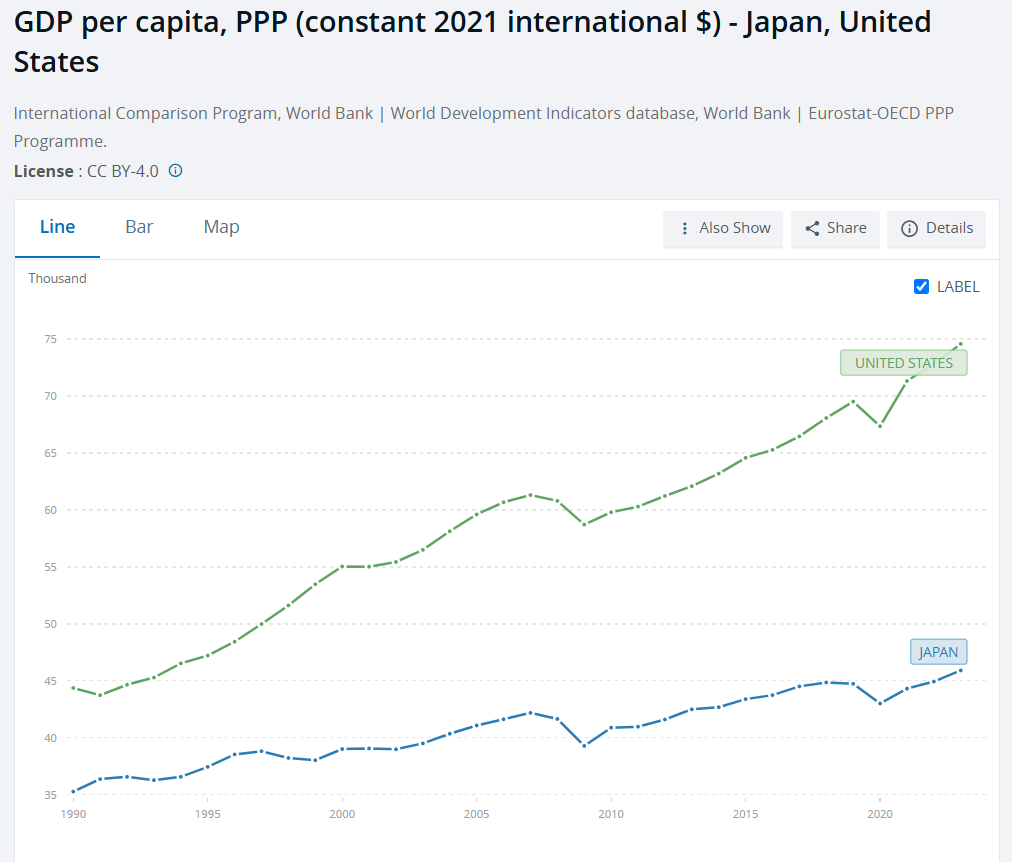This is Vindication???
Joe Nocera has a strange piece in the Free Press arguing that the “godfathers of protectionism” have been vindicated. It begins with a story about how Dani Rodrik couldn’t get a famous economist to endorse his book Has Globalization Gone Too Far? because doing so would arm the barbarians. Well give that reluctant economist a Nobel! because they were obviously correct. Tyler made the same point in his debate with Rodrik. Rodrik had no answer.
The piece is strange because there is little to no connection with any data; just assertion, vibe, and non-sequitur. Most bizarrely but hardly alone was this bit:
In the 1980s, Prestowitz was an official in Ronald Reagan’s Commerce Department, back when Japan, not China, was the trading partner the U.S. most feared. Japanese autos, televisions, washing machines, and all sorts of consumer electronics were flooding into the U.S., forcing American auto makers to close factories and even putting U.S. companies like Zenith out of business. Yet Japan was using tariffs and other less obvious trade barriers to prevent U.S. companies from exporting many of their products to Japan. It was protecting certain key industries from foreign competition.
This was not how the rules of free trade were supposed to work. Prying that market open, forcing Japan to play by the same rules as the U.S., was Prestowitz’s job.
He found it deeply frustrating. “Every time we completed a trade negotiation,” Prestowitz told me, “some economist would turn out a model to show that the deal was going to create X number of American jobs and would reduce the trade deficit by Y. And it never happened.”
Even more galling, he said, “The conventional response among economists was that it didn’t matter.” After all, even if Japan was keeping U.S. products out of its market, America still benefited from low-cost imports. Prestowitz has a vivid memory of a conversation he once had with Herbert Stein, President Richard Nixon’s former chief economist. “The Japanese will sell us cars,” Stein told him with a shrug, “and we’ll sell them poetry.”
Prestowitz also remembers the abuse he took for his views. “I was a Japan-basher, a protectionist, and so on,” he said. Paul Krugman, who was not yet a New York Times columnist but was already an influential economist, called Prestowitz “an intellectual snake-oil salesman” in a book he wrote called Pop Internationalism. The book, published in 1997, consisted of a half-dozen essays, each of which brutally attacked one or another of the handful of people who dared to say that globalization was less than perfect. (He described then-Labor Secretary Robert Reich as “not a serious thinker,” and Lester Thurow, the best-selling author and Massachusetts Institute of Technology economist, as “silly.”)
When I asked Prestowitz recently if he felt vindicated, he admitted that he did, but added that “I also feel a sense of loss that it took us so long to face reality and at such cost.”
Well here is data on GDP per capita in real terms in Japan and the United States since 1990. This is vindication???!

Or how about this:
No one anymore, on the left or the right, denies that globalization has fractured the U.S., both economically and socially. It has hollowed out once-prosperous regions like the furniture-making areas of North Carolina and the auto manufacturing towns of the Midwest.
Well the far left and the far right agree that America has become fractured and hollowed out, the Bernie Sanders-Donald Trump horseshoe. But both are wrong. For the rest of us in the happy middle, consider this–Hickory, North Carolina, once known as the furniture capital of the United States, did face some hard times. But in 2023 Travel and Leisure magazine named Hickory the most beautiful and affordable place to live in the United States! Writing:
Located in the foothills of the Blue Ridge Mountains, Hickory is a family-friendly destination known for its ample hiking trails and Southern charm. Currently ranked as the cheapest place to live in the U.S., Hickory has a median home price of $161,000. This affordable neighbor to the east of Asheville and north of Charlotte is popular with retirees, but it’s also becoming more attractive to young families; a steady stream of residents has been flocking here for its newfound fame as a technological hub for Google and Apple.
Doesn’t sound hollowed out to me.
The godfathers of protectionism haven’t been vindicated—but if they want to claim credit for President Trump’s tariff binge they’re welcome to it.
Addendum: Hat tip to Scott Lincicome on Hickory and do read Jeremy Horpedahl for details on the distribution of wages. Did you know, for example, that median weekly earnings for full time workers who graduated high school but are without a college degree are at an all time high? Switched earlier current for constant $2021 dollars in graph.